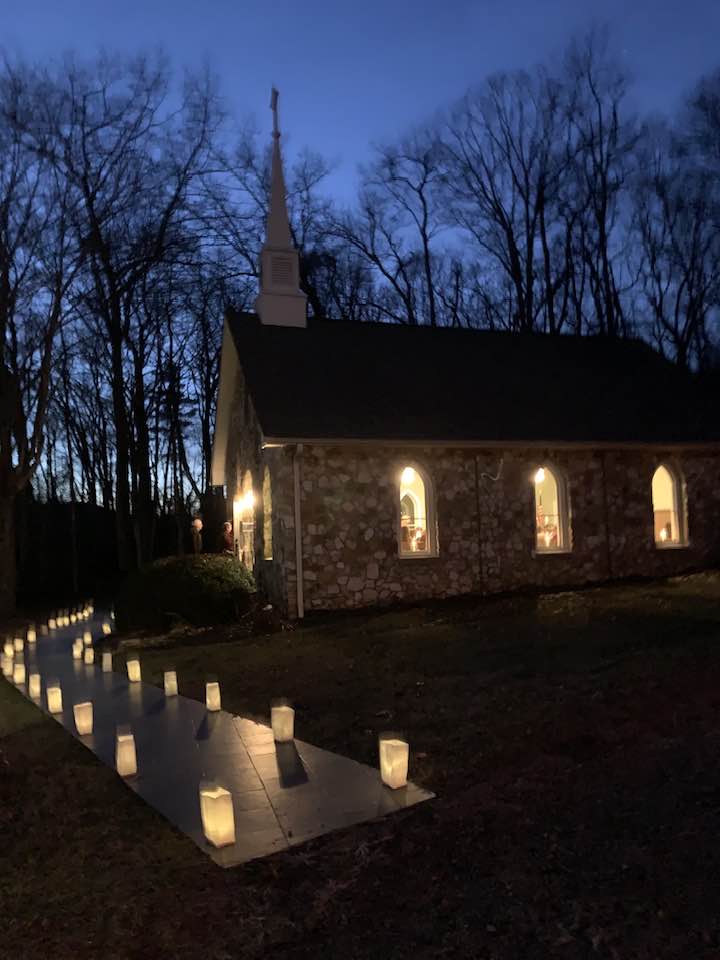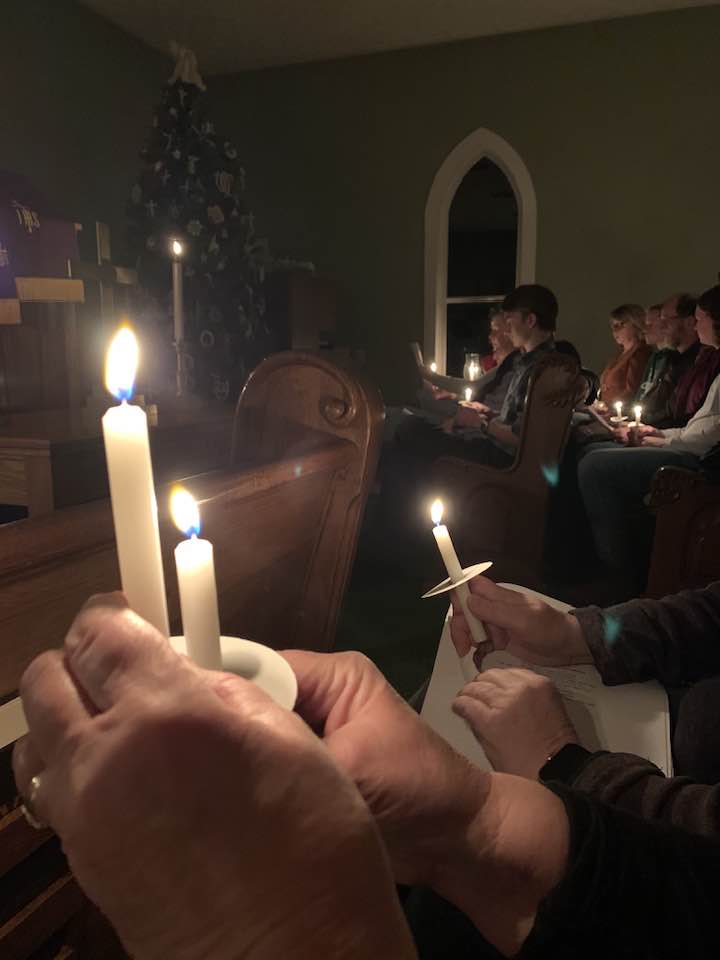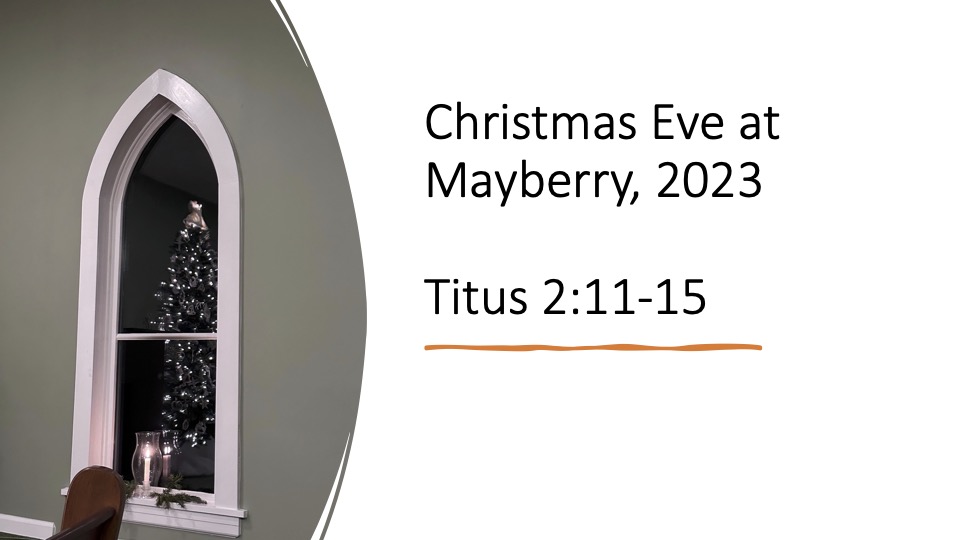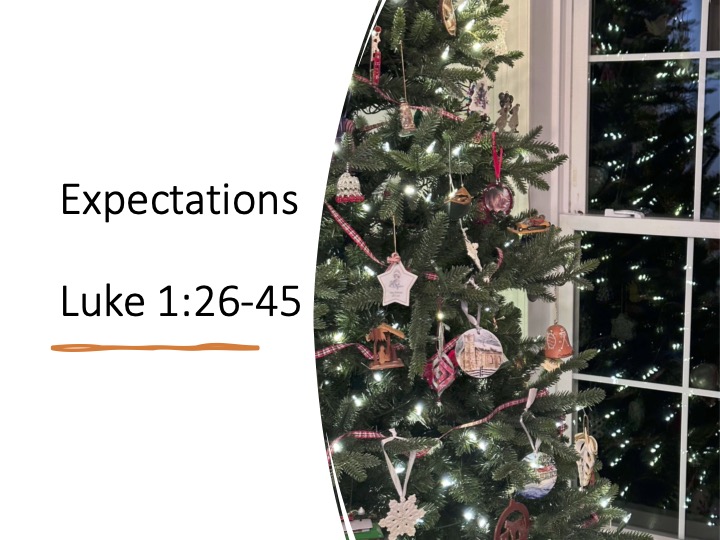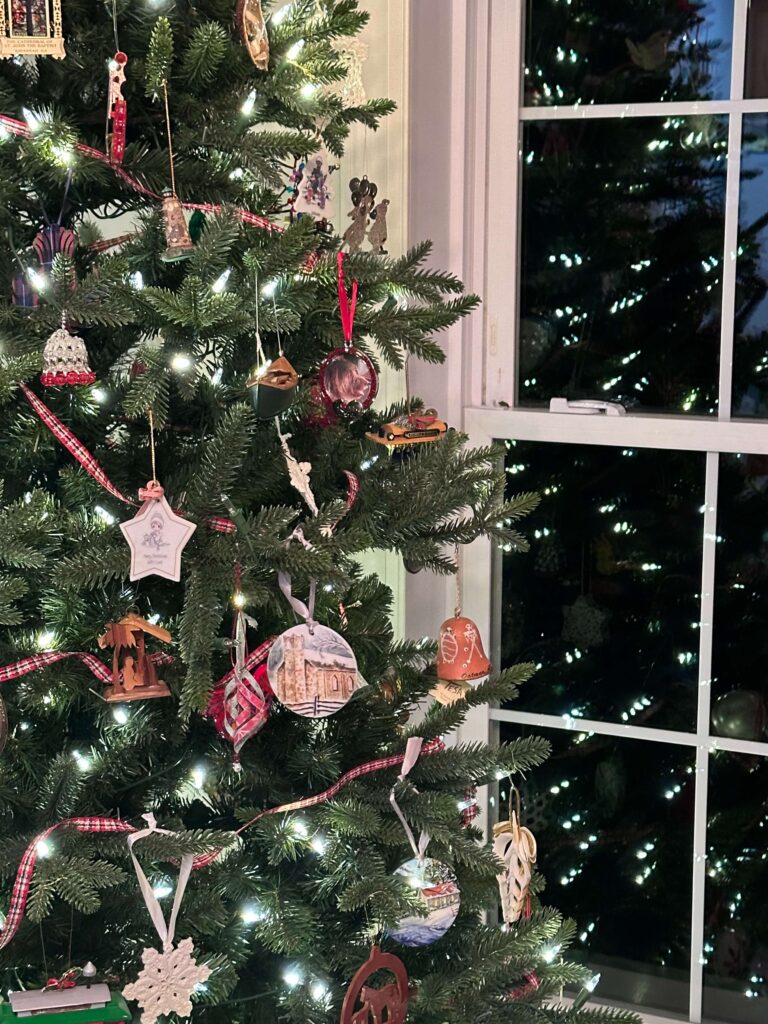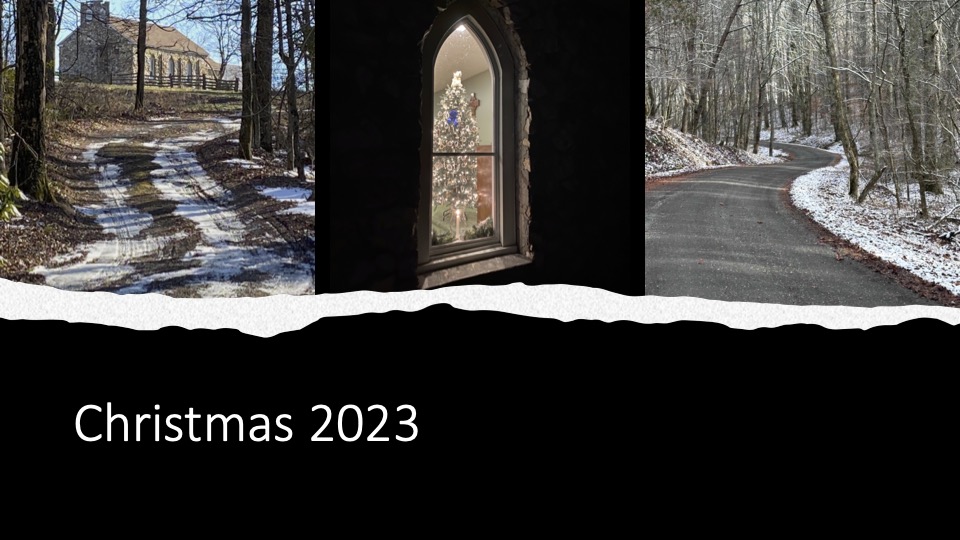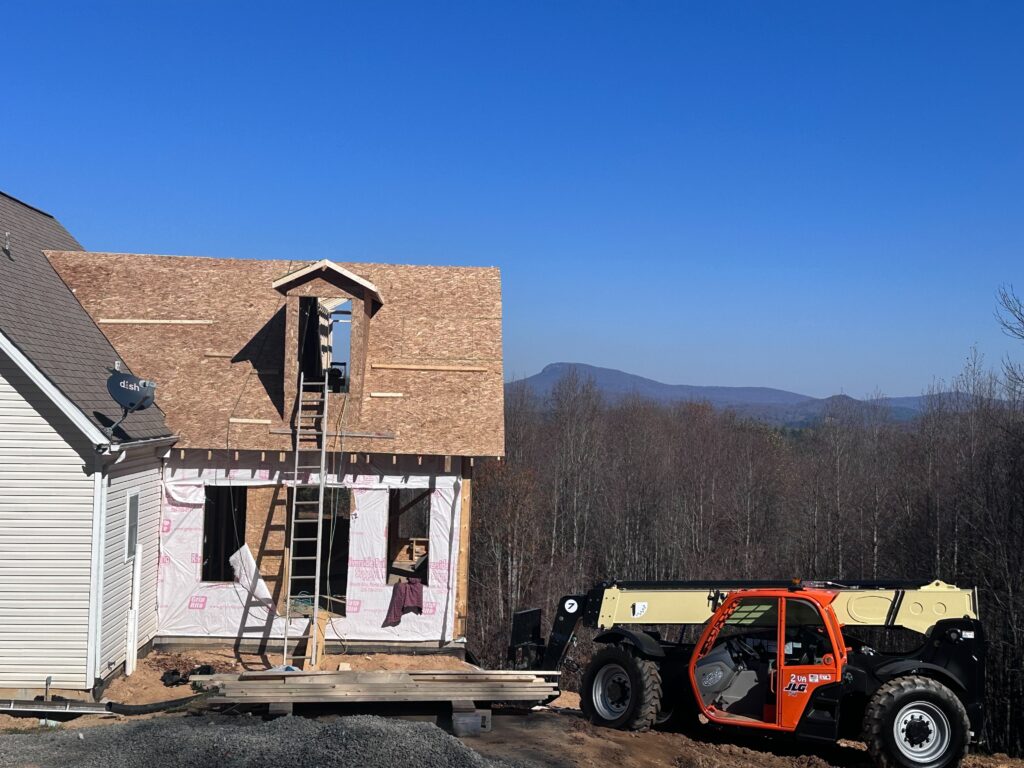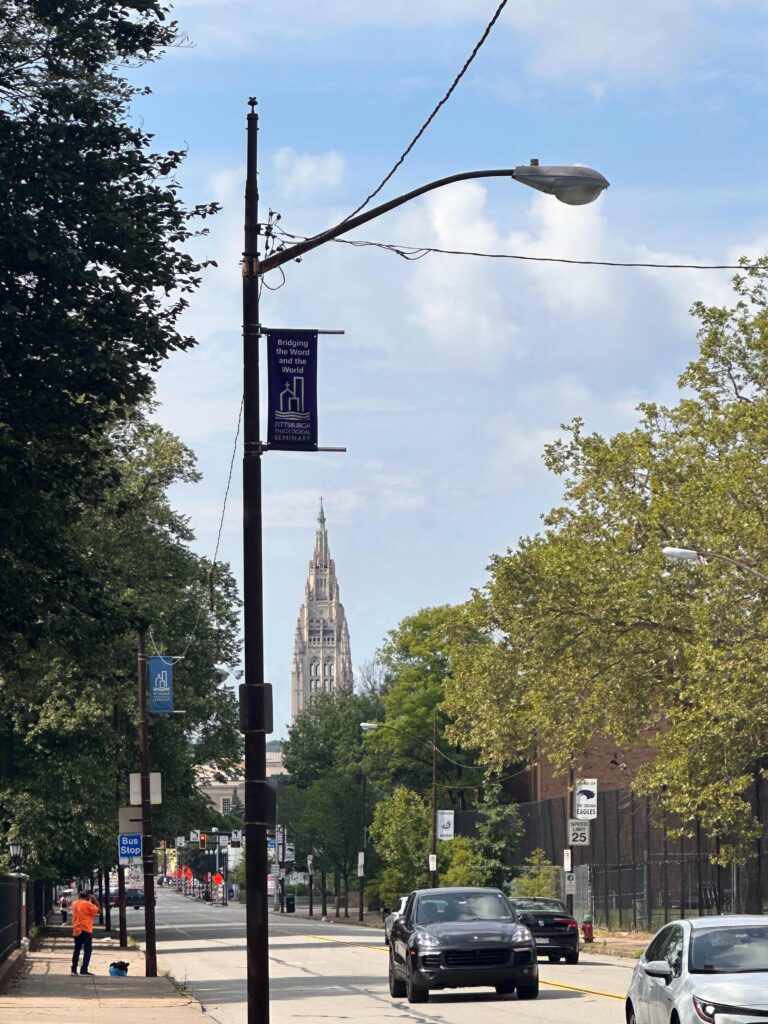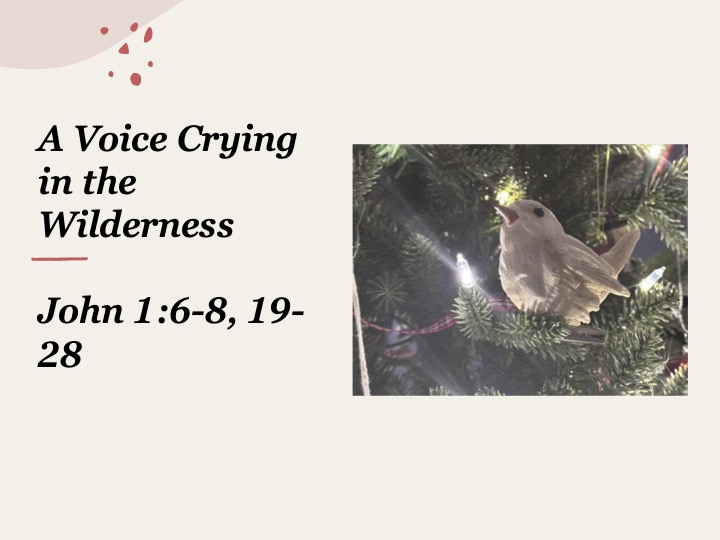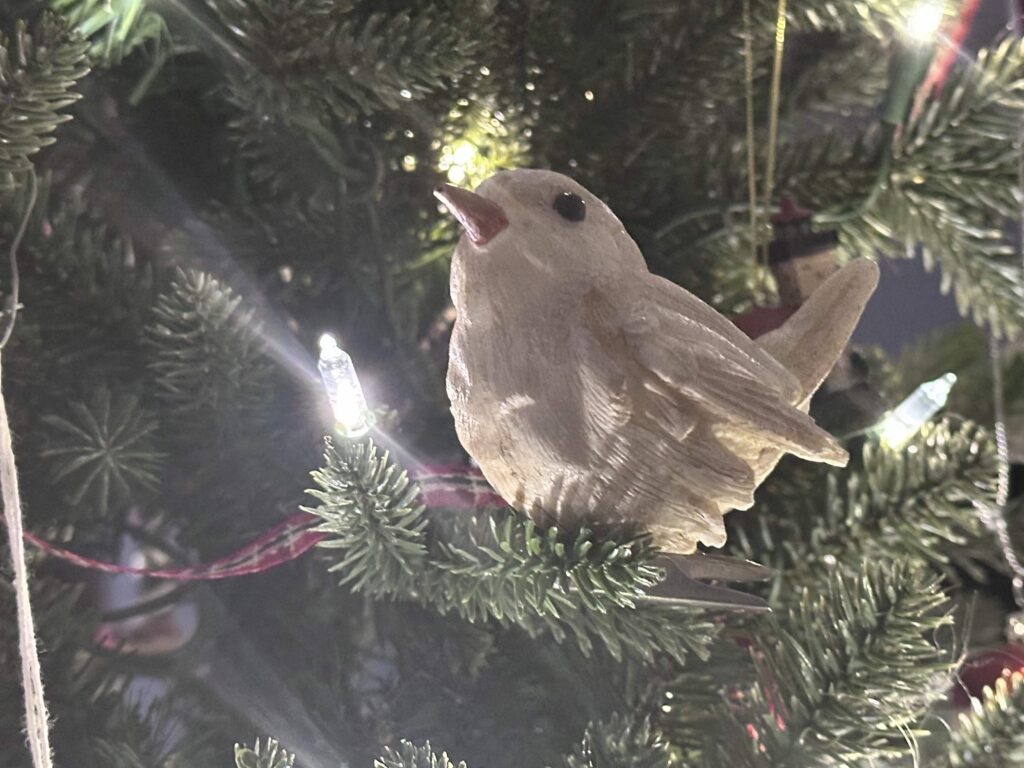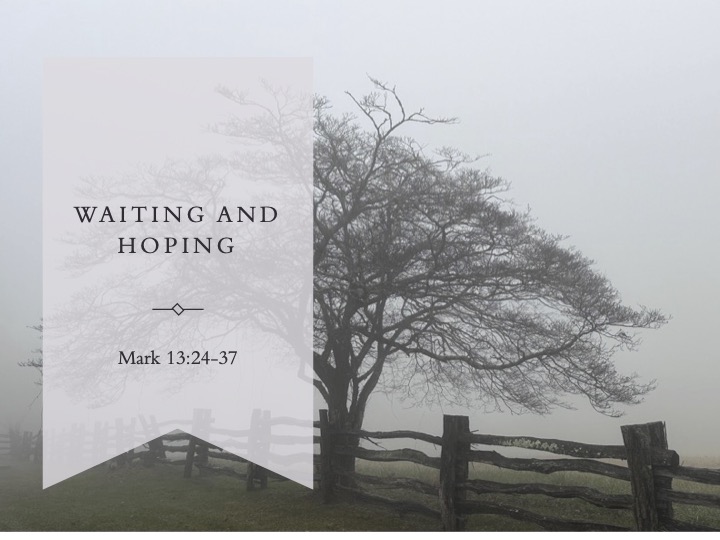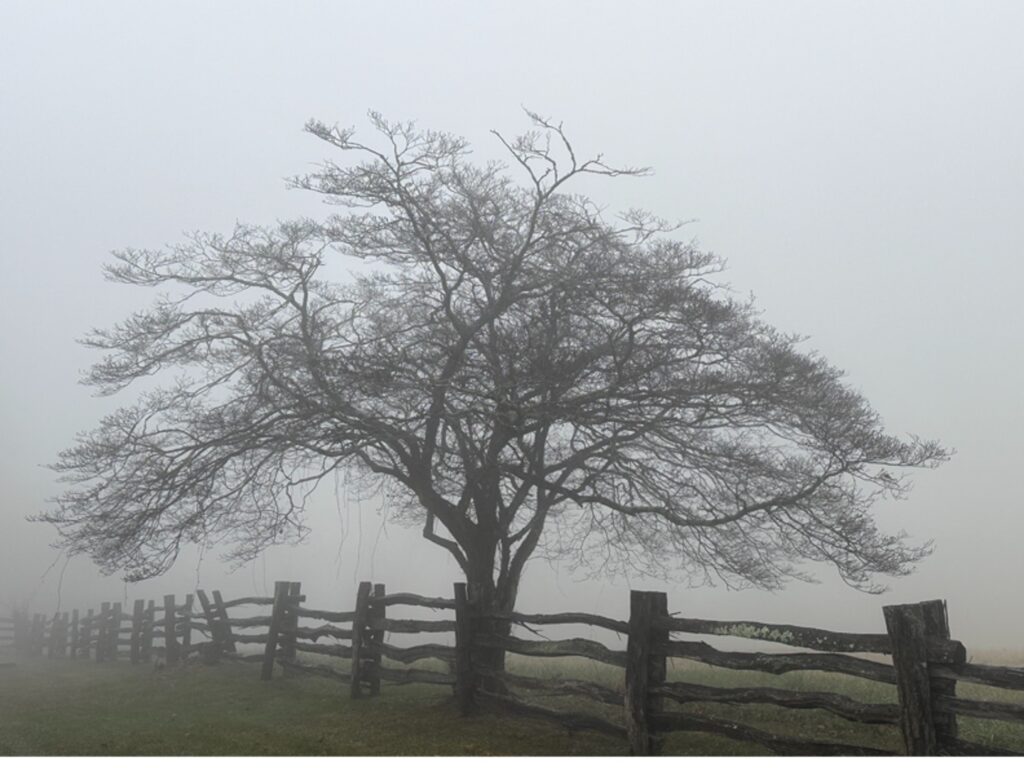Jeff Garrison
Mayberry Presbyterian Church
Christmas Eve 2023
Titus 2:11-15
Is your Christmas tree surrounded with gifts? This is, after all, the season of giving. You know, Christmas is the driving force behind the retail section of our economy—we’ve come a long way since that first Christmas when Joseph and Mary, a poor man, and his pregnant bride, had to take whatever shelter they could find.
Most of us enjoy giving and receiving gifts. I especially like giving a gift so special that, when opened, the eyes of the receiver sparkle. Some of us, who still have a child’s heart, also enjoy receiving gifts. There’s nothing more exciting than carefully opening the wrapping paper. This tradition came from my mom—”open the paper carefully so that we can reuse it.” It makes sense to those of us of Scottish heritage. You know what I’m talking about.
But when we just about have the present open, carefully pulling at the tape so as not to tear the paper, we catch a glimpse of something special, something we’ve always wanted but never felt quite right about buying for ourselves. At this point, frugality is thrown to the wind. We rip the remaining paper off and hold the present up high for all to see, then clutch the gift close our chest, chanting thanks: thank you, thank you.
You know, you’ve received a special gift when its one you can’t repay by giving another gift, and when such efforts are not only not required, but are unnecessary and counter productive. These are the types of gifts parents give their children. A child with halfway decent parents will never be able to repay the parents for all the gifts lavished upon the child. And if you think about it, most of these types of gifts are intangible, you can’t put a price upon them. But they’re the type of gifts you don’t easily forget.
Thinking back to gifts from my father, a few stand out. When I was probably five years old, my dad made a table and a set of chairs for my brother, sister, and me. From what I remember, the table was plywood covered with linoleum. The sides of the plywood were sealed with a metal strip, and it had metal legs.
That table vanished long ago. But the wooden chairs, live on. My parents kept them and used them for grandchildren, and then my brother got them for his grandchildren. They’ll probably be around for several more generations.
If Dad had gone out and purchased plastic chairs, I don’t think I’d remember… And those chairs and table would now, and for the next several thousand years, take up space in a landfill.
On another occasion, my dad made my brother and me wooden guns. All the other kids had received store-brought guns that year. One afternoon, a few days after Christmas, dad got a couple pieces of wood and drew out a gun on it, which he cut out into a rough shape with a jigsaw. Then he had us help him carve and sand and file the edges. We stained wood—so that by the time we finished, the pair of guns looked real.
We were living in the Walnut Hill neighborhood of Petersburg at the time, fighting the Civil War all over again. The next time we played army, my brother and I toted those guns proudly. The other kids were envious. Our guns were not only more durable than the plastic and metal store varieties they received, but they were also even more special. This didn’t come from their dollar value, but because my father had put some of himself into making them. I don’t know what happened to those make-believe guns, but they live in my memory.
Maybe we should reconsider the adage, “it is better to give than to receive.” I no longer know for sure it’s true, for there are some gifts we can only receive and when we graciously accept them, they change our lives. Such is the greatest gift of all, God’s gift to the world, a Savior.
In our Scripture reading from the short letter to Titus, Paul provides the theological foundation for the ethical advice he’s been giving Titus. If you read back over this chapter, you’ll see that Paul has instructed Titus on how Christians should conduct themselves. Now he gives reasons for such behavior. Paul’s advice flows these ways.
Paul looks back to the manifestation of God’s grace. Perhaps Paul has in mind here Jesus’ humble birth, a wonderful display of God’s love.
But Paul could also be thinking about the way God offered himself for our sins in a death by crucifixion. God has been exceptionally good to us in the past—which is why we should strive to live noble lives in the present.
And finally, because God has been good to us in the past, we have hope that God’s goodness will continue to be poured out upon us in the future. Our hope is for Jesus to return to receive those whom he ransomed from sin. God’s great gift of a Savior is a life-changing gift! We must learn how to gracious accept such grace.
I don’t know about your house, but I know ours will be rather quiet tomorrow. But homes with young children will be crazy, with kids up before daylight. After all, they’ve been anticipating the holiday for months. Children on Christmas have enough energy to light up the house without electricity.
Whether your home is quiet or raucous, take enough time to clear your mind, to remove thoughts from the boxes around the tree, and to forget about making the perfect dinner. Think about the greatest gift ever offered. And if you’ve not received this gift, spend a few moments in prayer, opening your heart to God and thanking him for coming to our world to save sinners.
Jesus Christ came to save. That’s the message of Christmas. That’s the message of our faith. Jesus Christ came to save sinners, to save you and me. It’s a life—changing gift if there ever was one. Amen.
